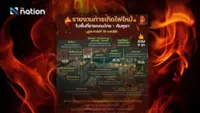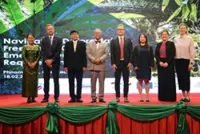Fisherman Siem Huat has seen fish stocks dwindle in recent years at the Tonle Sap Lake, and with them, his family’s sole source of income.
Experts say extreme weather brought by climate change, ecological disruption from dam-building, wetland conversions, and overfishing threaten food supplies and livelihoods for the millions who depend on South-East Asia’s largest lake.





